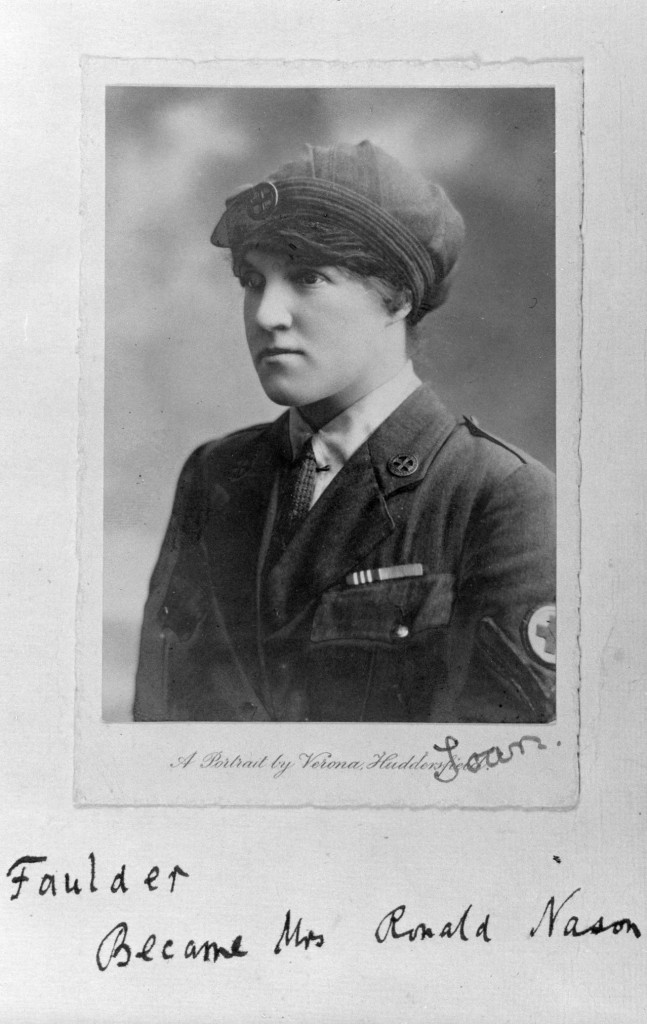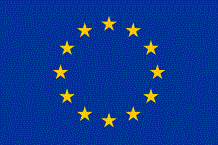“On the night of 18th May 1918, members of the St Omer Convoy were called out to evacuate patients after a bombing raid had hit a local ammunition dump.”
“First Military Medals awarded to the FANY” – FANY website [accessed 18 May 2020]
The FANY as they are almost always know were the First Aid Nursing Yeomanry, a group of predominantly women with the possibly fanciful idea of combining their horsewomanship and first aid ability to be of service to the British military. They envisaged they could gallop out on to the battlefield to retrieve the wounded and carry them back to the lines where First Aid could be applied. In reality this romantic idea evolved rapidly in World War One into driving heavy motor ambulances – initially for the French and Belgians because the British wanted nothing to do with them.

My Great Aunt, Evelyn Faulder (for some reason often known as “Joan”) was a member of the FANY and was one of those involved in the action at St Omer who was awarded the Military Medal.
The London Gazette of 5 July 1918 ![]() gives the following citation:
gives the following citation:
His Majesty the KING has been pleased to approve of the award of the Military Medal to the under mentioned Ladies -for distinguished services in the Field, as recorded: —
Miss Sarah Bonnell, First Aid Nursing Yeomanry,
Miss Evelyn Gordon-Brown, First Aid Nursing Yeomanry,
Miss Aileen Maude Faulkner, First Aid Nursing Yeomanry,
Miss Evelyn Faulder, First Aid Nursing Yeomanry,
Miss Nellie Dewhurst, V.A.D., attd. First Aid Nursing Yeomanry.
For gallantry and conspicuous devotion to duty, when an ammunition dump had been set on fire by enemy bombs and the only available ambulance for the removal of wounded had been destroyed. These ladies subsequently arrived with three ambulances, and, despite the danger arising from various explosions, succeeded in removing all the wounded. Their conduct throughout was splendid. War Office, 8th July, 1918.
Today’s post on the FANY website refers to there being some questioning as to the number of citations for such a small unit, but that all nominations were well documented and consequently accepted.
In World War One a total of 115,589 Military Medals were awarded but only 127 of these were awarded to women (ref: Wikipedia: Military Medal) – predominantly to members of the Queen Alexandra’s Imperial Military Nursing Service (QAIMNS) and the Territorial Force Nursing Service (TFNS). The fact that the very small FANY was awarded a total of 17 Military Medals; 27 Croix de Guerre; one Legion d’Honneur, and 11 Mentions in Despatches during the war is a testament to the exceptionally hazardous conditions in which they worked. The St Omer Convoy itself was the most decorated women’s unit of the war. (ref: FANY (PRVC): History)
The other point worth noting is that these were Military Medals not Military Crosses.

Photo by “Hsq7278”
Creative Commons Attribution-Share Alike 4.0 International license
The Military Medal was instigated in March 1916. A few months later “eligibility for the MM was extended, by a Royal Warrant dated 21 June 1916, to women whether British subjects or foreign, with the first awards gazetted on 1 September 1916. Although nurses of the Queen Alexandra’s Imperial Military Nursing Service (QAIMNS) and the Territorial Force Nursing Service (TFNS) and other women serving with the British Army often had the social status of officers, they did not hold an officer’s commission and were therefore ineligible for the Military Cross, but could and were awarded the MM”. (Ref: Abbott & Tamplin, British Gallantry Awards, 2nd edition. Page 224, note 4. cited in Wikipedia: Military Medal)
Members of the FANY in those days would have been considered “Ladies” (early criteria for admission were to be able to ride and to own a horse) and driving heavy ambulances and being in danger was not very “lady like”. This caused a problem to the powers that be. Should they be eligible for the Military Cross or should that be reserved for “Gentlemen Officers” (including “temporary gentlemen” – promoted from the ranks for the duration of the war)? In the end it seems that ladies like my great aunt were deemed “honorary men” and hence qualified for the Military Medal. The London Gazette however records the citation as referring to “ladies”.

Photo by “Hsq7278”
Creative Commons Attribution-Share Alike 4.0 International license
The FANY website posting today also includes pictures of (1) the St Omer Convoy of the FANY (a “convoy” being their unit description) parading at Place Victor Hugo in St Omer so that three of their number could be awarded the Croix de Guerre by General Marquis de Laguiche and (2) of one of their number being “presented, in the field, with their British decorations by General Sir Herbert Plumer GOC 2nd Army”. I think in fact this referred to General Plumer “awarding the ribbon”, as the British Journal of Nursing 24 May 1919 records that three of them including Evelyn Faulder received their medals from the King at an investiture on 15th May in the Quadrangle of Buckingham Palace. The last picture in the sequence on the FANY website shows Gen. Plumer shaking hands with one of the FANYs; just above her breast pocket can be seen a MM medal ribbon.
